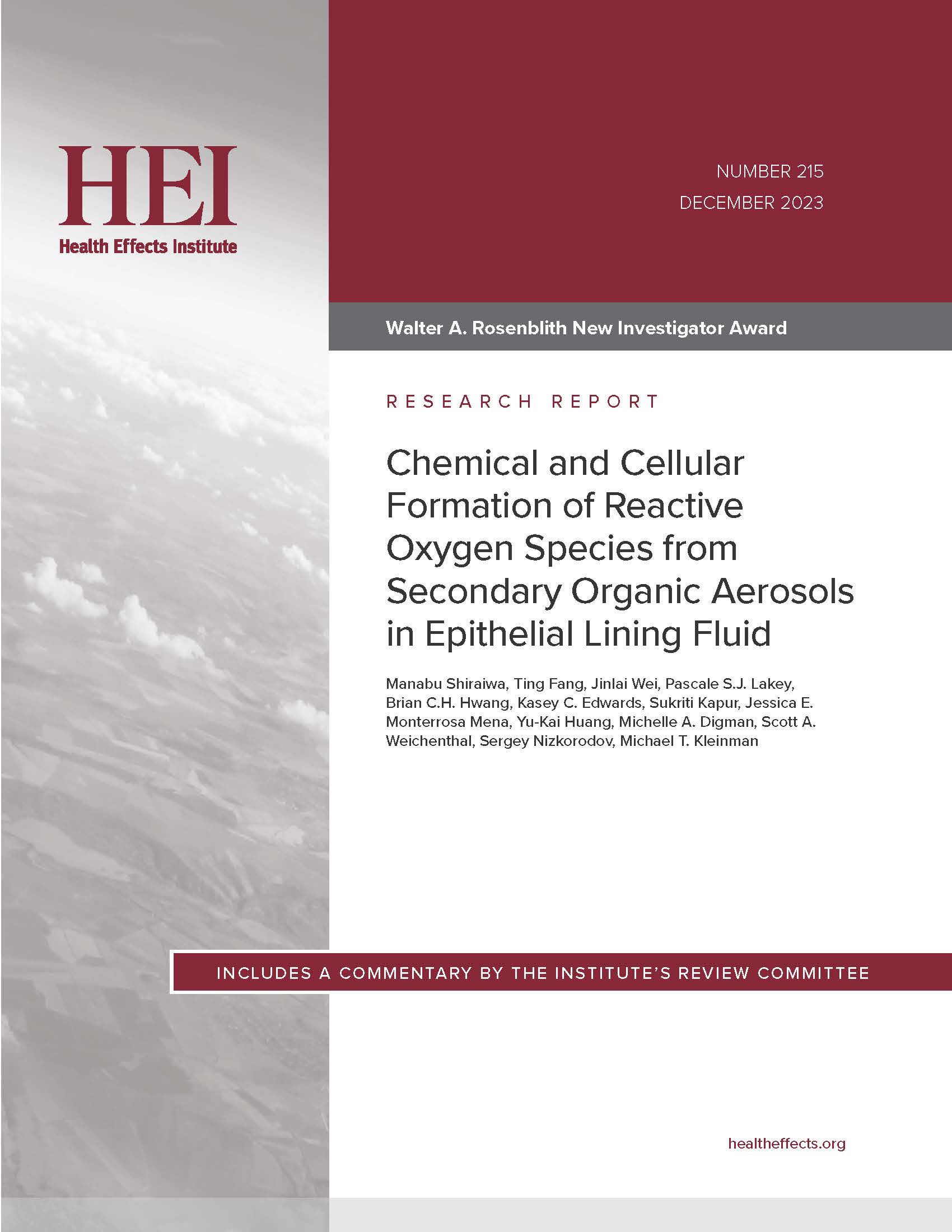
You are here
HEI releases report on how lungs react to pollutants
2023
Air pollution from particulate matter (PM) is associated with adverse health effects and is a leading risk factor of morbidity and mortality worldwide. Inhalation of PM can damage respiratory tract tissues by generating reactive oxygen species (ROS), which are highly reactive oxygen-containing chemicals.
A large fraction of PM is formed by chemical reactions of gases in the atmosphere. PM formed in the atmosphere from gas-phase organic precursors is known as secondary organic aerosol (SOA).
A new HEI report presents the findings of a study on the effects of SOA exposure on formation of ROS in lungs. Manabu Shiraiwa of the University of California, Irvine, the 2018 recipient of HEI’s Walter A. Rosenblith New Investigator Award, and colleagues evaluated the mechanisms of aerosol-induced ROS formation by two pathways in the respiratory tract: by chemical reactions and by immune cells called macrophages.